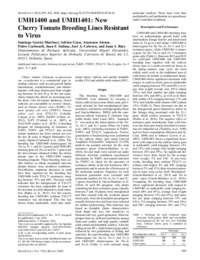Por favor, use este identificador para citar o enlazar este ítem:
https://hdl.handle.net/11000/34378Registro completo de metadatos
| Campo DC | Valor | Lengua/Idioma |
|---|---|---|
| dc.contributor.author | García Martínez, Santiago | - |
| dc.contributor.author | Grau Sánchez, Adrián | - |
| dc.contributor.author | Alonso Sanchis, Aránzazu | - |
| dc.contributor.author | Carbonell, Pedro | - |
| dc.contributor.author | Salinas, Juan Franciso | - |
| dc.contributor.author | Cabrera Miras, José Ángel | - |
| dc.contributor.author | Ruiz Martínez, Juan José | - |
| dc.contributor.other | Departamentos de la UMH::Biología Aplicada | es_ES |
| dc.date.accessioned | 2025-01-11T15:55:56Z | - |
| dc.date.available | 2025-01-11T15:55:56Z | - |
| dc.date.created | 2020-02-17 | - |
| dc.identifier.citation | HortScience 55(3):395–396 | es_ES |
| dc.identifier.issn | 0018-5345 | - |
| dc.identifier.issn | 2327-9834 | - |
| dc.identifier.uri | https://hdl.handle.net/11000/34378 | - |
| dc.description.abstract | Cherry tomato (Solanum lycopersicum var. cerasiforme) is a commercial type including cultivars with several growth habits (determinate, semideterminate, and indeterminate), with long clusters and fruits weighting between 10 and 30 g. In the last years, cherry tomato has shown an increasing market share. Like all tomato landraces, cherry cultivars are susceptible to several viruses, such as Tomato mosaic virus (ToMV), Tomato spotted wilt virus (TSWV), Tomato yellow curl virus (TYLCV) (Cebolla-Cornejo et al., 2007), PepMV (Gómez al., 2012), ToTV (Verbeek et al., 2007), or ToLCNDV (Juárez et al., 2019). A breeding program for introgressing of resistance to ToMV, TSWV, and TYLCV into several tomato landraces has been carried out over the last 20 years at Miguel Hernández University (Spain) (Carbonell et al., 2018). The breeding line UMH1400 (homozygous for Tm-2a, Ty-1, and Sw-5 genes) and UMH1401 (homozygous for Tm-2a and Sw-5 genes) are the first releases obtained within the cherry tomato type in the EPSO-UMH tomato breeding program. These breeding lines enable farmers to obtain acceptable harvests despite intense virus incidence conditions. Nevertheless, important decreases in yield have been reported for the breeding line UMH1400 (with TYLCV resistance), ranging between 35% and 48%. Previous work indicates that the introgression of TYLCV resistance has been responsible for most of the decrease in yield obtained in fresh tomatoes (Rubio et al., 2012). For this reason, breeding line UMH1401 (without TYLCV resistance) was developed. This line has shown better marketable yield than traditional cherry cultivar and similar titratable acidity (TA) and soluble solid content (SSC) | es_ES |
| dc.format | application/pdf | es_ES |
| dc.format.extent | 2 | es_ES |
| dc.language.iso | eng | es_ES |
| dc.publisher | American Society for Horticultural Science | es_ES |
| dc.rights | info:eu-repo/semantics/openAccess | es_ES |
| dc.rights | Attribution-NonCommercial-NoDerivatives 4.0 Internacional | * |
| dc.rights.uri | http://creativecommons.org/licenses/by-nc-nd/4.0/ | * |
| dc.subject | Solanum lycopersicum | es_ES |
| dc.subject | ToMV | es_ES |
| dc.subject | TSWV | es_ES |
| dc.subject | TYLCV | es_ES |
| dc.subject | Tm-2a gene | es_ES |
| dc.subject | Sw-5 gene | es_ES |
| dc.subject | Ty-1 gene | es_ES |
| dc.title | UMH1400 and UMH1401: New Cherry Tomato Breeding Lines Resistant to Virus | es_ES |
| dc.type | info:eu-repo/semantics/article | es_ES |
| dc.relation.publisherversion | https://doi.org/10.21273/HORTSCI14710-19 | es_ES |

Ver/Abrir:
UMH1400 and UMH1401 New cherry tomato breeding lines resistant to virus.pdf
44,2 kB
Adobe PDF
Compartir:
 La licencia se describe como: Atribución-NonComercial-NoDerivada 4.0 Internacional.
La licencia se describe como: Atribución-NonComercial-NoDerivada 4.0 Internacional.
.png)